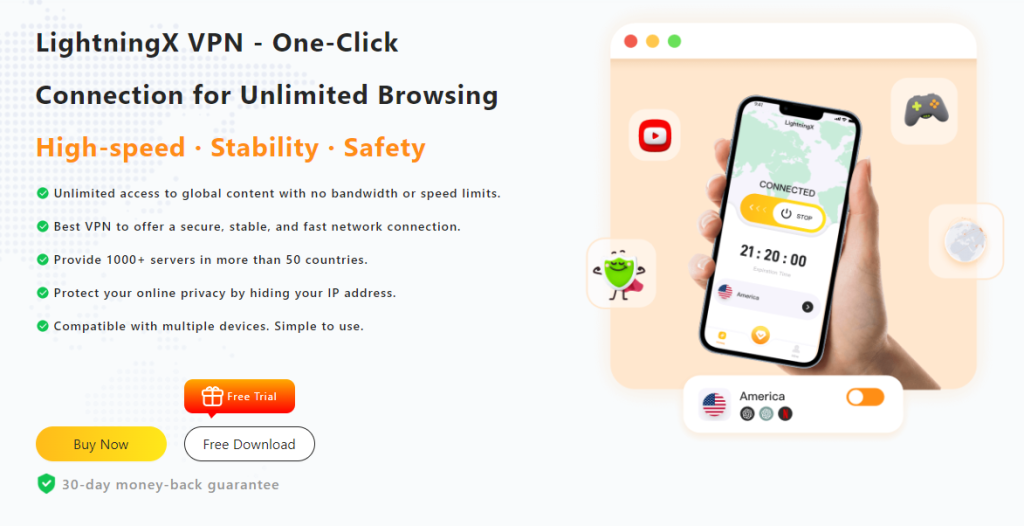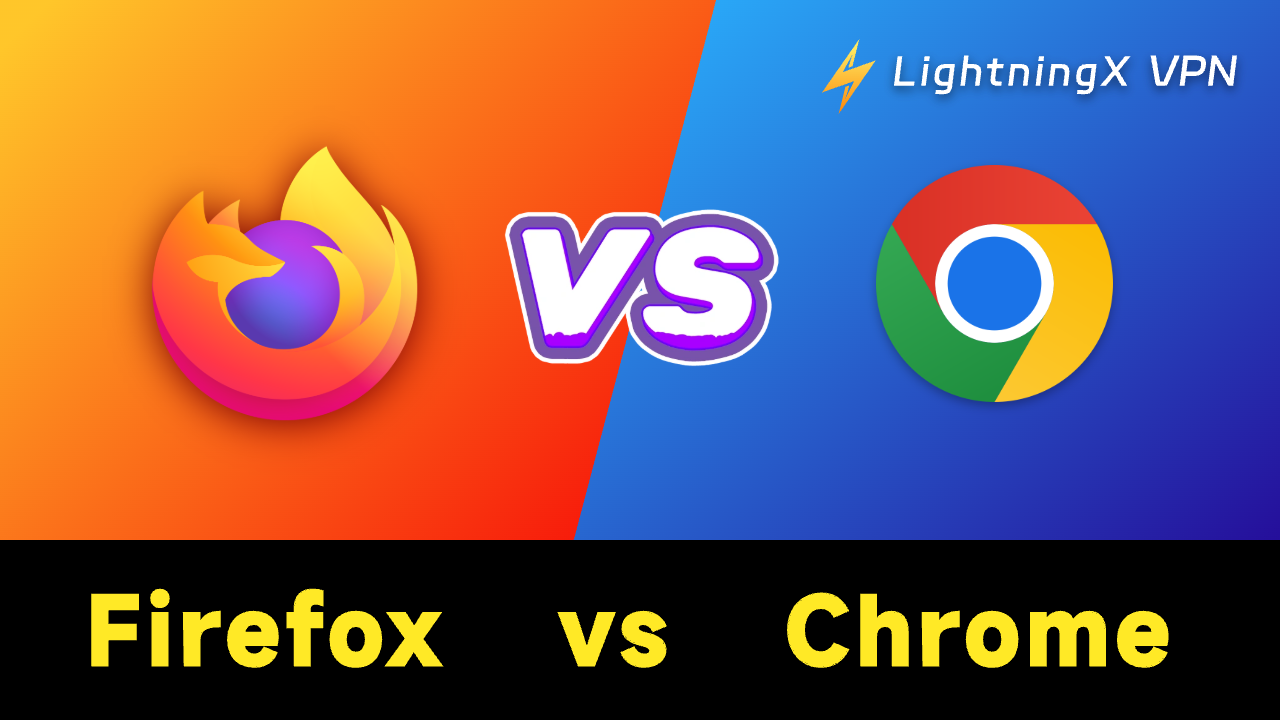Are you worrying about your personal search history leaking or that some browsers aren’t giving you satisfactory results? Or does the slow loading of web pages bother you?
As the two most outstanding browsers in the world, Chrome is the most powerful browser with various features, you can search almost everything on it. And Firefox aims to bring customized and safe experiences to its users.
Here is a comparison of the two most popular browsers on the market, Google and Firefox, to help you choose a better browser.
Firefox vs. Chrome: Privacy and Security
Firefox has done a much better job than Chrome in the security issue.
Both Google and Firefox offer a lot of security features to keep users safe online. Because of this kind of guarantee, their position in the market has also endured.
Users will have accounts on various Google products, and Google Chrome will keep your password. And save your password memory from being compromised.
Because of this, Google collects a lot of personal information, as well as search history and browser history, and suggests advertisements based on your preferences.
In terms of security and privacy, Firefox does a much better job. Run by a group of volunteers, they put the user first. That means this browser considers the least of the profits and they would send less targeted ads.
When it comes to the security guarantee, it blocks trackers by default while Chrome doesn’t. Through Firefox’s security feature, trackers like cookies, fingerprints, and cryptoming scripts, won’t reach their hand at any part of your privacy.
Related: Google Safe Search Settings: How to Turn On/Off SafeSearch
Firefox vs. Chrome: Performance
Both perform very well, but Google is still the leading head.
As we talk about browser performance, we may consider the speed and occupation of RAM. While Chrome is famous for its fast speed, Firefox has been dedicated to following its steps. And now more and more people realize that Firefox can run as fast as Chrome.
There is another point that should be noticed, Firefox uses an efficiency mode by default. It keeps limiting the occupation of resources. The more tabs or windows you open, the more distinction you will find between these two browsers. You may sense that Chrome is much slower than Firefox when operates a mass of searching procedures.
Firefox vs. Chrome: Ease of Use
Both Google and Firefox have very simple pages.
Google’s language design is a bit more minimalist, so it’s easier for users who are purely focused on what they’re searching for.
Firefox offers more freedom and allows you to adjust the various elements to cater to personal preferences. You can set your home page style.
When opening multiple tabs, Google tends to compress the icon at the top of the page onto a single page. It may cause some of the tab’s brief information and sources missing. This makes it difficult for some users to get back to the destination page.
On the other hand, Firefox’s icons remain at an average size. The part that exceeds the top space is moved to the back and hidden. All you have to do is swipe to the right to find the tab you want.
And both browsers can sync information, data, and documents across multiple accounts. Not only that, but the bookmarks, settings, and passwords of the tabs you browse can be synced across your different devices.
Firefox vs Chrome: VPN
VPN products like LightningX VPN can be used in both Foxfire and Chrome. To some extent, it adds more protection to your browsing experience. Prevent third parties from peeping on you through the website.
Firefox vs Chrome: Features
Google has richer features than Firefox.
Chrome has its edge on its enormous library of extensions and plug-ins. And Chrome fits well with other Google-derived products. For example, Google Play runs better on Chrome.
Firefox does well in some of its default features, such as the in-browser screenshot tool. It can reduce the workload.
And sometimes on various occasions, really do not like some of the Page’s videos automatically play and sound very loud. You won’t have that problem with Firefox. It comes with autoplay blocking.
But Firefox has negative user feedback, that is, the playback records are not synchronized. When you leave its page, the playback process disappears when you re-enter. And you need to watch the video from the beginning.
Firefox vs Chrome: Which One Is Suitable for You?
Both Google and Firefox are hot browsers right now. They all have their advantages. Google has an advantage in its features. It provides a large number of search libraries as well as additional functionality.
Firefox is similar to its home page, and both are easy to navigate. Firefox has done a better job of customizing the interface, allowing users to create and provide more elements and themes.
It is also more secure, automatically blocking third-party cookies. Firefox also takes up fewer system resources than Chrome, making it faster to browse the content you want and saving you time.
Both browsers are good options. Google is a great choice for users looking for practicality. And privacy-conscious users are more tend to Firefox.

(If you care a lot about your cyber-security, you can download VPN products. We highly recommend you apply LightningX VPN to your devices.
The LightningX VPN performs perfectly in hiding users’ ID addresses and ensures you are not being tracked by third parties and others. Moreover, with it, you can surf more quickly and stably.
With nodes all over the world, you can have access to the local internet of your target place. It will return your money back in 30 days without any excuses.)
Related: Best Firefox VPN & How to Set Up (Mozilla VPN)
FAQ
Q: Are there disadvantages to using Firefox?
A: Yes, the biggest problem with Firefox is the smaller extension library. Firefox is also unable to be compatible with some websites. And unlike Chrome, it doesn’t fit well with Google’s ecosystem.
Q: Which browser do most people use?
A: Chrome is the most used desktop browser. Other browsers, including Safari and Firefox also enjoy great popularity.
Q: While Chrome is the most popular browser? Does that make it the best?
A: The popularity doesn’t mean it’s flawless or that the best browser to use. It can only be said that it does a pretty good job in some aspects, such as its expansion function. However, it doesn’t have as much security as other great browsers.
Conclusion
Google and Firefox are both excellent browsers on the market. Above is our comparison of Google and Firefox. It can be used as a good reference, but the most important thing is your personal experience. Try both browsers for yourself and make your own judgment.
















